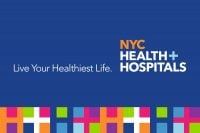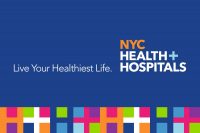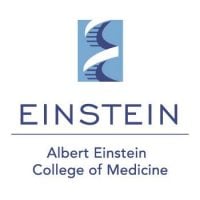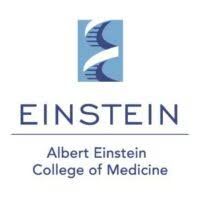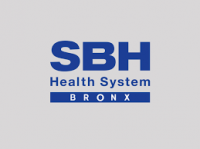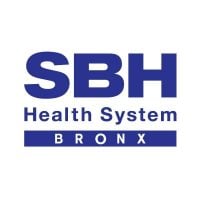Jacobi Medical Center - Pelham Parkway
Drug Rehab Center in Bronx, New York
Montefiore Jacobi Medical Center - Pelham Parkway is a JCAHO accredited facility in the Bronx offering comprehensive treatment options for alcohol and opioid abuse, including inpatient and outpatient services, evidence-based interventions, and private health insurance plans.
About Jacobi Medical Center - Pelham Parkway in New York
The Montefiore Jacobi Medical Center – Pelham Parkway is a comprehensive facility located in the Bronx, within New York City, that offers specialized treatment for individuals struggling with alcohol and opioid abuse. Providing a comprehensive approach to care, the center provides inpatient, outpatient, aftercare support, and Intensive Outpatient services for patients of all ages.
The medical center also implements evidence-based interventions that best suit the needs of the individual. Treatment options include cognitive behavioral therapy (CBT), family therapy, group therapy, trauma therapy, individual therapy, and Nicotine Replacement Therapy (NRT). The expert and experienced staff at Montefiore Jacobi Medical Center – Pelham Parkway is highly certified and adhere to the highest standards of care, as the facility is accredited by the Joint Commission for Accreditation of Healthcare Organizations (JCAHO). In addition, the Montefiore Jacobi Medical Center – Pelham Parkway also accepts private health insurance plans.
Genders
Ages
Modality
Additional
Accreditations

JCAHO
Conditions and Issues Treated
Opioid addiction has become a significant health problem in the United States. In 2015, there were 91 opioid overdose-related deaths per day, with a substantial increase in mortality rate in 2014.
When opioid addiction has reached a point where a person’s life becomes unmanageable, treatment options are available to help them get sober. Treatment that includes medical care with medications and counseling can help a user transition into sobriety.
Levels of Care Offered
This center offers a variety of custom treatment tailored to individual recovery. Currently available are Aftercare Support, Inpatient, Intensive Outpatient, Outpatient, with additional therapies available as listed below.
Inpatient treatment for alcoholism or drug addiction is an option that provides the addict with a supportive environment in which they can stop using. After detox, an inpatient treatment center provides a structured environment for the addict to recover from their addiction and begin taking steps toward a lifetime of sobriety.
This type of treatment is appropriate for addicts that are most in need of intensive care and supervision. This includes those who were unable to quit on their own, those who need more structure than they can get in outpatient treatment, and those whose addiction has led them into legal trouble or severe health problems.
The Intensive Outpatient Program offered by Jacobi Medical Center - Pelham Parkway is designed for those who need intensive care but would rather get it in the comfort of their own home. The treatment programs vary in duration and intensity and can be tailored to suit the patient’s needs. The program includes regular visits to the facility, though the overnight stay is not needed. IOP is suitable for patients who have been treated in residential treatment programs and are in the transition phase. It helps the patient live at home and discharge some work or school responsibilities even while undergoing treatment. The patients gradually get back to their routine life with the support of a friend or family member.
Outpatient treatment is often used for drug addicts in drug rehab. Outpatient treatment consists of counseling and therapy sessions. This form of treatment is also called ‘day-treatment’. The outpatient treatment process begins with the addict’s initial detox period, lasting about ten days.
Outpatient treatment is used for those who are at moderate risk for ‘slipping back’ into the addiction, for those who:
- Are not currently experiencing any side effects from withdrawal and can handle social pressure
- Can handle stressors that might trigger relapse
- Have a stable living environment or have moved out of their previous environment, which was not conducive to being sober
- Have a support system that allows them to go to a facility a few times a week while still keeping their current responsibilities
- Have no legal obligations, being either on parole or probation, that require them to seek treatment at a mandatory facility
- Are not currently experiencing any side effects from withdrawal and can handle social pressure
- Have a stable living environment or have moved out of their previous environment, which was not conducive to being sober
Completing a drug or alcohol rehab program is only the first step. Then comes aftercare support. These services include sober living accommodations, career counseling, and AA/NA programs for those struggling with sobriety or who want help maintaining it after initial rehab at an addiction facility.
They can last up to a year or more depending on what’s needed most urgently after the earlier stages are completed.
Therapies & Programs
Because no single treatment is effective for all addicts, the goal of treatment and therapy should be to figure out what works best for each individual. Tolerance and withdrawal levels differ from person to person, affecting the treatment intensity required. Addiction treatment should aim to help addicts develop healthy coping mechanisms for dealing with their addiction and its underlying causes.
Family therapy is beneficial for people who are in addiction treatment services because it offers addicts the opportunity to work with their family members to better understand what led them to make choices that contributed to their addiction.
This type of therapy helps family members reach a deeper understanding of how they can best support their loved one during recovery. It also helps the addict better understand their own motivations and triggers that led them to turn to substance abuse.
Family therapy can help addicts in the following ways:
- Assists family members in processing difficult feelings so they don’t blame or resent recovering addicts
- Assists family members in understanding how addiction has impacted the addict and everyone who is involved with them
- Allows the addict to take responsibility for their actions, while encouraging improved communication skills
- Helps family members understand how to best support an individual in recovery so addicts don’t relapse again.
Group therapy can help build a stronger support system and give addicts in Bronx, NY insight into their addiction that they gain through shared conversations. Group therapy occurs in a controlled group environment, exclusive of one on one meetings. This makes it safer for patients to feel comfortable sharing the struggles they’re going through and gaining perspective.
Trauma therapy is beneficial for people who are recovering from drug addiction because it helps them heal from past traumas that may have caused them to turn to harmful substances or led them to experience negative emotions that contributed to their destructive behaviors.
This type of treatment works by processing difficult experiences so individuals can learn how to process these events without having to turn to substances for coping.
Trauma therapy can help addicts in the following ways:
- Helps individuals understand their experiences and emotional responses to difficult events, including why they turned to drugs or alcohol
- Provides them with comfort and support while working through difficult emotions related to these traumatic experiences
- Offers an opportunity for addicts to have a voice and be heard, which can improve their self-esteem
- Can help them develop coping skills so they can better respond to triggers instead of turning to substance abuse.
Cognitive-behavioral therapy is a technique that is used to help people with addiction. Specifically, it is a way of identifying thoughts and behaviors that cause the addiction. It is typically used in an individual counseling session.
The content explains cognitive behavioral therapy and how it works to address some behaviors that may be leading to unintended consequences in their life, as well as its benefits for those seeking sobriety.
It works by helping people to talk through their issues and addressing the thoughts that cause said behaviors. It is an excellent way of learning about oneself and one’s perception of the world.
Payment Options Accepted
For specific insurance or payment methods please contact us.
Is your insurance accepted?
Ask an expert, call (888) 674-0062
Additional Details
Specifics, location, and helpful extra information.
Bronx, New York 10461 Phone Number(718) 918-4465 Meta DetailsUpdated November 25, 2023
Staff Verified
Jacobi Medical Center - Pelham Parkway Patient Reviews
There are no reviews yet. Be the first one to write one.
Bronx, New York Addiction Information
More than 2 million New Yorkers are currently suffering from some type of substance abuse and many of those are minors. Alcohol abuse, in particular, is prevalent among those underage. As a result of the high prices and regulation of prescription drugs, many New Yorkers turn to heroin instead. This has led to a serious heroin epidemic in the state.
In the Bronx, drug overdoses are a major problem – in 2016, there were nearly 76 lives lost to drug-related deaths. Common drugs commonly abused in the state include cocaine, methamphetamine, and prescription painkillers like oxycodone and Vicodin. There are some 12-step programs, holistic treatment options, and other types of therapy available depending on your specific needs and preferences.
Treatment in Nearby Cities
- Woodmere, NY (16.9 mi.)
- Whitestone, NY (4.7 mi.)
- Wappingers Falls, NY (51.5 mi.)
- Nanuet, NY (18.4 mi.)
- Roslyn Heights, NY (11.4 mi.)
Centers near Jacobi Medical Center - Pelham Parkway
Albert Einstein College of Medicine - Montefiore Medical Center Wellness Center at Waters Place OCDY
The facility name, logo and brand are the property and registered trademarks of Jacobi Medical Center - Pelham Parkway, and are being used for identification and informational purposes only. Use of these names, logos and brands shall not imply endorsement. RehabNow.org is not affiliated with or sponsored by Jacobi Medical Center - Pelham Parkway.


